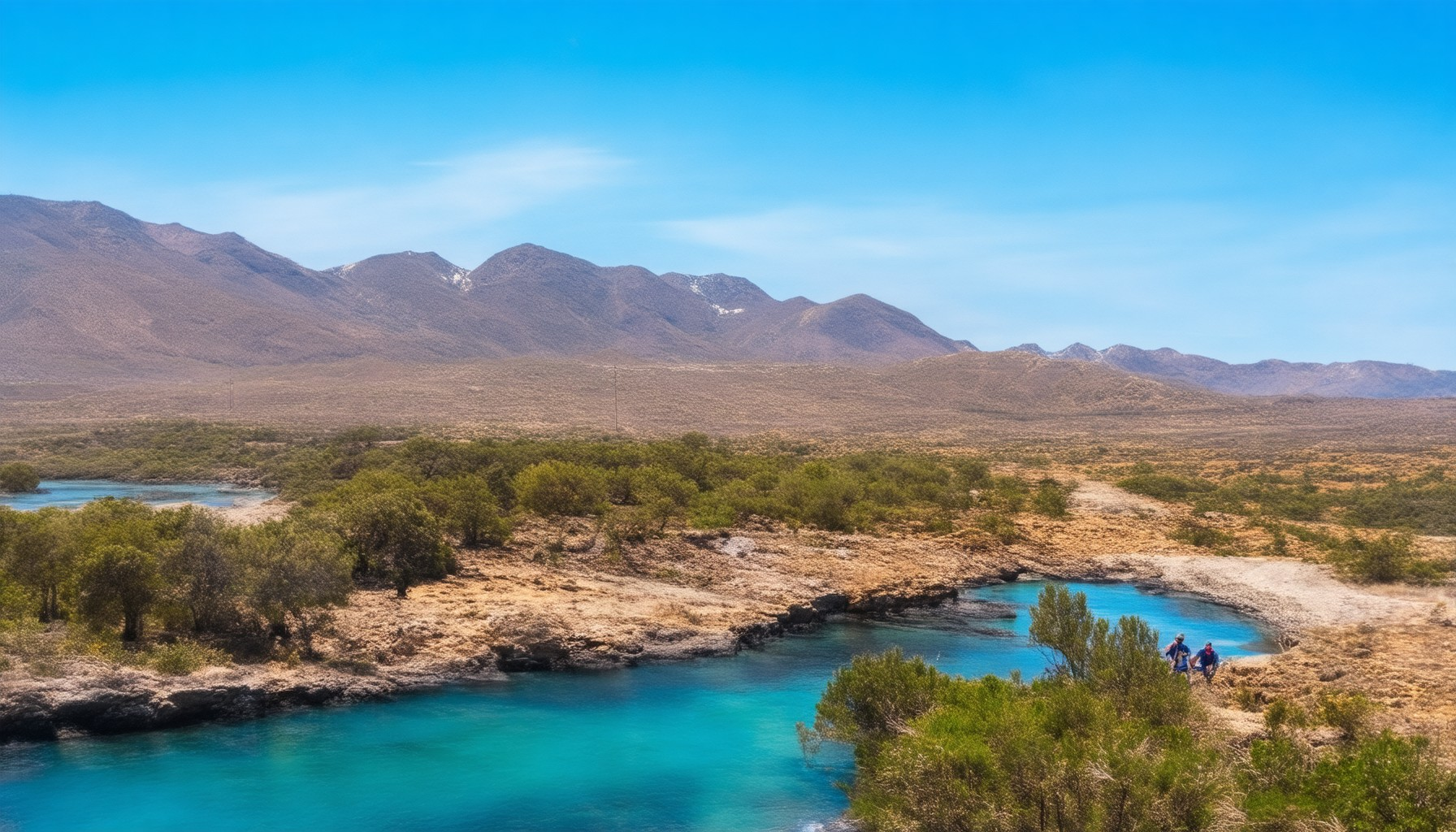Exploring the world responsibly has never been more important in our increasingly interconnected global community. As travelers, we carry the privilege—and responsibility—to respect the cultures, ecosystems, and communities we encounter. Ethical travel tips are essential tools for those seeking to leave a positive footprint during their adventures. But what does it truly mean to travel ethically? It means prioritizing sustainability, cultural sensitivity, and social responsibility in every aspect of your journey. Whether it’s minimizing environmental impact, supporting local economies, or advocating for fair treatment of host communities, ethical travel is about making choices that contribute positively to the world.
Key Takeaways
– Prioritize Sustainability: Adopt eco-friendly practices to reduce your travel footprint, such as staying in sustainable accommodations and using renewable energy.
– Respect Local Cultures: Engage with communities mindfully, learning local customs and supporting indigenous businesses to foster cultural exchange.
– Promote Fair Wages: Ensure your travel dollars support fair labor practices, helping workers achieve safe and equitable working conditions.
– Minimize Environmental Impact: Follow Leave No Trace principles and avoid over-tourism to protect fragile ecosystems and wildlife habitats.
– Contribute to Local Economies: Shop locally, dine at family-run restaurants, and purchase artisanal goods to boost community livelihoods.
– Stay Informed and Responsible: Research local laws, regulations, and cultural sensitivities to avoid misunderstandings and disrespectful actions.
– Leave a Positive Legacy: Share your journey responsibly and participate in conservation efforts to preserve destinations for future generations.

What’s the Most Sustainable Way to Travel?
Sustainable travel focuses on minimizing environmental impact while exploring the world responsibly. Here’s a comprehensive guide to making your travels as eco-friendly as possible:
Transportation
- Public Transit: Buses, trains, and metro systems are among the most sustainable options. They reduce carbon emissions significantly compared to private vehicles.
- Cycling and Walking: Choose bike rentals or walking whenever possible to avoid emissions altogether.
- Ferries and Water Taxis: These are often more eco-friendly than flying or driving, especially for shorter distances.
- Electric Vehicles: If you must drive, opt for an electric car or hybrid vehicle to reduce your carbon footprint.
- Car-Sharing: Sharing rides with others can drastically reduce the environmental impact of your journey.
Accommodation
- Eco-Lodges and Eco-Hotels: These establishments prioritize sustainability, often using renewable energy and minimizing waste.
- Hostels and Guesthouses: Staying in shared accommodations reduces resource consumption and carbon output.
- Sustainable Tourism Practices: Look for accommodations that support local communities and conservation efforts.
Lifestyle Tips
- Pack Light: Minimize waste by bringing reusable items and avoiding excessive packaging.
- Avoid Plastic Use: Bring reusable water bottles and containers to reduce plastic waste.
- Support Local Businesses: Stay in locally-owned establishments and participate in guided tours that benefit the community.
- Stay Informed: Research destinations and accommodations that align with your values to ensure your travel choices are ethical and sustainable.
By adopting these practices, you can enjoy meaningful travel experiences while contributing positively to the environments and communities you visit. Remember to always consider the long-term impacts of your actions and strive to leave a positive legacy wherever you go.
For more insights and tips on sustainable travel, explore our Sustainable Travel Guide and discover how you can make every journey more eco-conscious.
Top 10 Travel Tips
We’ve compiled a list of essential travel tips to help you make the most of your journey:
- Plan Ahead:** Research your destination thoroughly. Check visa requirements, entry restrictions, and local customs to ensure a smooth trip.
- Pack Light:** Choose versatile clothing items that can mix and match. Opt for a lightweight, compact suitcase to make traveling easier.
- Stay Connected:** Keep important documents close at hand, such as your passport, tickets, and travel insurance. Consider using a secure pouch for added protection.
- Be Flexible:** While sticking to your itinerary can help, allow some flexibility to explore hidden gems or adjust plans due to unexpected changes.
- Learn Local Etiquettes:** Familiarize yourself with cultural norms, such as dress codes or dining manners, to respect local customs and avoid misunderstandings.
- Stay Safe:** Keep valuables secure and avoid displaying expensive items in public areas. Use well-lit, busy streets after dark and stay aware of your surroundings.
- Try Local Cuisine:** Immerse yourself in the culture by sampling authentic dishes. Be cautious with street food and drink only from reputable establishments.
- Stay Healthy:** Pack necessary medications and consult with a healthcare professional before departure. Stay hydrated and watch your diet to avoid stomach issues.
- Document Your Journey:** Capture memories through photos and videos. Share your experiences online using platforms like Inxchan to connect with fellow travelers and inspire future adventures.

What Does It Mean to Travel Ethically?
Traveling ethically involves considering the social, environmental, and economic impacts of your journey. Here’s a breakdown of key aspects:
- Cultural Respect: Immersing yourself in local customs, learning basic phrases, and avoiding behaviors that may disrupt the community.
- Environmental Stewardship: Minimizing waste, using reusable items like water bottles, and choosing eco-friendly accommodations.
- Economic Support: Purchasing locally-made goods, dining at family-run restaurants, and supporting community initiatives.
- Animal Welfare: Avoiding attractions involving animal exploitation and supporting wildlife conservation efforts.
- Historical Awareness: Educating yourself on the destination’s history and current challenges to make informed decisions.
- Sustainable Transportation: Using public transport or cycling to reduce environmental impact and engage with locals.
- Avoid Over-Tourism: Planning visits during off-peak seasons to minimize resource strain and environmental damage.
- Respect Local Laws: Adhering to legal requirements and understanding cultural norms to avoid misunderstandings.
Ethical travel is about leaving a positive mark on the destinations you visit, fostering cultural exchange, and contributing to sustainable development.

What Are Ethical Considerations in Tourism?
Ethical considerations in tourism encompass a wide range of factors that ensure travel experiences are conducted responsibly and respectfully. These considerations aim to minimize negative impacts on the environment, promote social welfare, and preserve cultural heritage while benefiting local economies.
- Environmental Impact: Tourism often leads to habitat destruction, pollution, and energy waste. Ethical tourism practices include reducing carbon footprints, supporting eco-friendly accommodations, and minimizing waste generation.
- Social Responsibility: Tourists should be mindful of their interactions with local communities. This includes fair treatment of workers, respecting cultural norms, and avoiding exploitation.
- Labor Practices: Ensuring that workers in the tourism industry receive fair wages, safe working conditions, and proper benefits is a critical aspect of ethical tourism.
- Cultural Respect: Adhering to local customs, traditions, and laws is essential. Tourists should avoid actions that may disrespect cultural values or disrupt communal activities.
- Economic Impact: Promoting local businesses and supporting community-led initiatives helps distribute benefits more evenly among residents.
- Sustainable Tourism: Choosing tour operators and accommodations that adhere to sustainability standards can make a significant difference in preserving destinations for future generations.
Ethical tourism goes beyond just considering personal comfort; it requires a commitment to the well-being of the places and people visited. By making informed choices, travelers can contribute positively to the communities they encounter.
Inxchan encourages responsible travel and supports initiatives that align with ethical tourism principles. Explore our responsible travel guides for more insights and tips on making a positive impact during your adventures.
Four Major Ethical Considerations
- Integrity : Ensuring actions align with moral principles and values. This involves honesty, transparency, and consistency in decision-making.
- Fairness : Promoting equality and justice in interactions and outcomes. It involves treating others with respect and ensuring equitable opportunities.
- Respect : Valuing individuals’ dignity and diverse perspectives while maintaining confidentiality and avoiding harm.
- Responsibility : Being accountable for actions and their consequences, while also considering long-term impacts on society and the environment.

How to Visit Hawaii Ethically
Visiting Hawaii responsibly involves considering environmental sustainability, cultural respect, and community impact. Here’s a guide to exploring the islands ethically:
-
Plan Ahead
- Research eco-friendly accommodations and transportation options.
- Look for guided tours operated by local companies.
- Check for any necessary permits or regulations.
-
Minimize Impact
- Bring reusable water bottles and containers.
- Practice Leave No Trace principles while hiking.
- Support businesses that prioritize sustainability.
-
Engage with Locals
- Volunteer for community projects or cultural events.
- Attend local festivals and celebrations.
- Learn basic Hawaiian phrases and customs.
-
Support the Local Economy
- Shop at local markets and farms.
- Dine at family-owned restaurants and bakeries.
- Purchase handmade crafts from local artisans.
-
Stay Informed
- Research and respect local laws and regulations.
- Avoid overcrowding popular tourist spots.
- Be mindful of sensitive cultural and historical sites.
-
Leave a Positive Legacy
- Share your experience responsibly online.
- Contribute to conservation efforts.
- Preserve the natural beauty of the islands.
By following these ethical guidelines, you’ll ensure your visit to Hawaii contributes positively to the island’s future and its people.





0 Comments